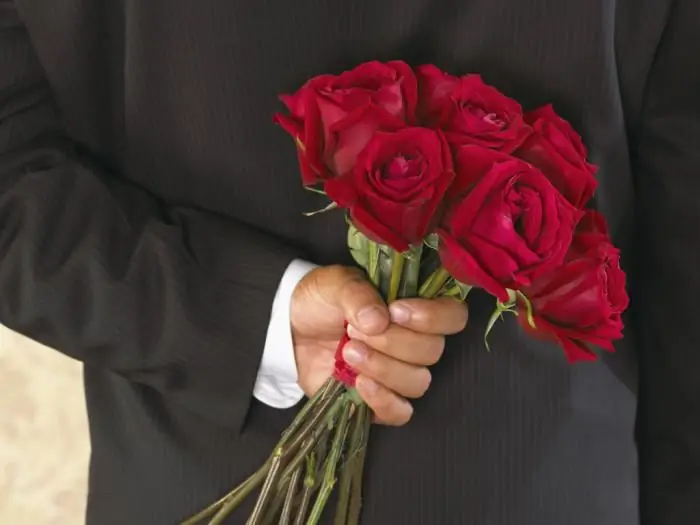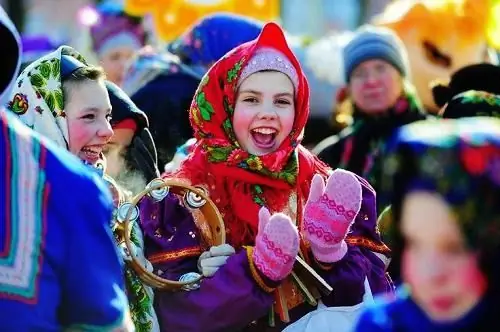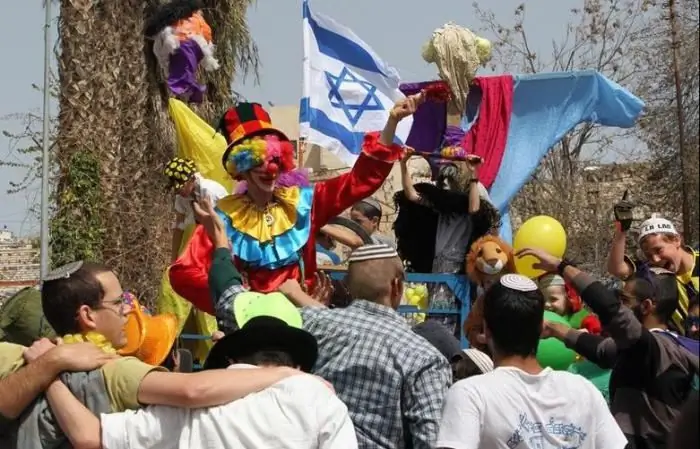2026 Author: Priscilla Miln | miln@babymagazinclub.com. Last modified: 2025-01-22 17:55:15
When this merry holiday, Maslenitsa, comes, it is always accompanied by fun, festivities and delicious pancakes. That is why Maslenitsa is so loved by the Russian people.

Favorite holiday
Shrovetide in Russia and in Russia it has always been accompanied and is accompanied to this day by a cheerful mood and joy, celebrated on a grand scale and with an abundance of various goodies, including pancakes, pies and cheesecakes. Maslenitsa is celebrated everywhere: in villages and cities. It was believed that non-participation in it threatens that a person can bring trouble on himself. On Maslenitsa, it is customary to eat a lot of fatty and junk food, it is allowed to indulge in intoxicating drinks and go to visit. Perhaps that is why it was and remains a favorite Russian holiday.

History of Maslenitsa
The history of the holiday goes far into antiquity. Shrovetide is an ancient Slavic holiday, which is firmly rooted in the daily life of people even after the adoption of Christianity. Oddly enough, the Slavs celebrated the New Year with Shrovetide, because until the 16th century the year began not from January, but from March. Pancakes from the Slavsassociated with the sun: round, ruddy and hot. In the life of Russian people, Maslenitsa week was the brightest, most cheerful and carefree. All the Russian people amused themselves with dancing, sleigh rides, various fairs, admiring traveling theaters, participating in fisticuffs and honoring the newlyweds. Over time, new holidays began to appear, but Shrovetide continued to be celebrated on a grand scale, without stinting on treats.
During the reign of Alexei Mikhailovich, many measures were taken to calm the daring subjects, but all attempts were in vain.
A great lover of fun, Peter I tried to connect this holiday with European traditions: Italian carnival processions, clownish performances, noisy feasts. Only in one year (1724) did Maslenitsa fail due to severe frosts and snowstorms: the carnival procession could not be organized because it was too cold for guests in costumes and masks on the streets of St. Petersburg.

During the reign of Catherine II, during Shrovetide, a masquerade was held, the participants of which marched through the villages and ridiculed the vices of people.
Shrovetide Days
On Maslenitsa every day of the week is accompanied by its own special rite.
So, on Monday it is customary to celebrate Maslenitsa: dress up a straw effigy and dress in women's clothes.
On Shrovetide Tuesday - festivities, sleigh rides from icy hills. Large crowds of people went to the fairs, laughed at the performances of puppet theaters and wandered among the guests.
Wednesday - gourmet. In every housethey set the table with all sorts of treats: pancakes, pies, beer. At the fairs, you could treat yourself to nuts, gingerbread, honey.
Thursday falls in the middle of the fun. It was on this day that the most spectacular fisticuffs took place, with their strict rules and restrictions. By the way, Ivan the Terrible was very fond of such entertainment and this day was especially solemn and cheerful.
On Friday, they tried to speed up the wedding and find a single couple. It was also on this day that mothers-in-law invited their sons-in-law to pancakes and pies.
On Saturday, sisters-in-law and young daughters-in-law preferred to gather and arrange gatherings at the table.
On the Sunday of that week, Shrove Tuesday, when it is celebrated, it is customary to ask for forgiveness from everyone for committed acts or accidental insults. That is why the last day of the week is called "Forgiveness Sunday".
When is Shrove Tuesday?
There are no clear dates for the celebration: they are mobile and different every year. Therefore, speaking about when Maslenitsa is celebrated, we cannot name a specific number, but we will give guidelines: this is the eighth week before Great Lent. The whole week is accompanied by delicious food and drinks, thereby preparing believers for fasting.

Folk festivals
Shrovetide has always been accompanied by cheerful and carefree festivities. In Russia, it was considered a wild, ruinous week. The inhabitants of the villages, young and old, preferred to rest this week, sledding, down hills, dressing up a straw woman in clothes, and carrying her on a sleigh. Also arrangedfairs, where everyone considered it his duty to buy the necessary and unnecessary trinkets. Treats were sold on the squares - pancakes with various fillings: sour cream, honey and caviar. You could have a beer or hot tea. Famous fistfights, masquerades were arranged, mummers went around. When Maslenitsa is celebrated, everyone is in a good and cheerful mood.

Signs and customs
Shrovetide (when it is celebrated, we have already found out) - the time when all customs and signs are associated with pancakes.
- It is believed that if pancakes do not work out, then expect trouble and misfortune, but if the food is hot and ruddy, good luck and happiness will accompany the family.
- A lot of pancakes - to enrichment and prosperity, a little - the year will be lean and difficult.
- All year there will be no quarrels between the son-in-law and the mother-in-law if she feeds him delicious pancakes. Otherwise, quarrels cannot be avoided. But they often forget about the father-in-law, because it is he who should invite the son-in-law on Sunday to "eat up the sheep", that is, for a meat dinner.
- It is customary to treat all friends and acquaintances with pancakes, as well as commemorate the dead by eating the first pancake in their honor.
- Swings were considered one of the most favorite pastimes on Maslenitsa. It is customary to think that the higher the swing rises, the richer the harvest will be. Signs and slides have not bypassed: the longer you drive, the longer the flax will grow in the fields.
- It was also believed that if, when Maslenitsa is celebrated, the festivities are accompanied by rain, then we can expect a rich harvest of mushrooms in the forests. And if it’s frosty and cold on Maslenitsa, then summerwill be warm.
- It was customary to celebrate the days of Shrovetide on a grand scale, without stinting on treats. If you meet Maslenitsa with sadness, not having fun from the heart, then the rest of the year will be boring and dreary.

Attribute
Invariable attribute of Maslenitsa - Kostroma. This is a fictional character who has become the embodiment of spring and fertility. They created it with the help of straw, most often the scarecrow had the face of a girl. The "funeral" of the scarecrow took place in a parodic form. He was laid on boards or stretchers. Worn around the village, brought to the church, then to the river and into the forest. The girls covered their heads with white scarves and "mourned the deceased." At the head of the procession were guys dressed up as priests, in bast shoes and with a censer. Often such "funerals" ended with drowning or burning an effigy at the stake. This whole rite is connected with the idea of the spring revival of nature. It was believed that without this rite, nature would be unfavorable to the villagers, the summer would be damp or dry, which would lead to crop failure and, accordingly, poverty and ruin.
The days of Maslenitsa among the Russian people were considered the days of a holiday, unbridled fun, parties. Maslenitsa was a favorite holiday for many villagers, associated with the arrival of spring, the rebirth of the forces of nature. Residents were looking forward to this week to eat plenty of tasty and fatty food before a strict fast. It was also customary to have fun on Maslenitsa, ride a sleigh, honor the elderly and newlyweds, and, of course, eat hot and ruddy pancakes. TodayMaslenitsa has lost its meaning a little, but, nevertheless, in the soul of the Russian people it remains a cheerful, wild and "delicious" holiday.
Recommended:
International Women's Day March 8 - a holiday of spring. Traditions, history and features of the celebration of March 8

International Women's Day is already a familiar holiday when men celebrate and pay special attention to their mothers, wives and daughters. However, was everything smooth before? Does this holiday have a different meaning? Information for those interested
Day of the inventor and innovator: what date is celebrated, the history of the holiday

Throughout history, people have made discoveries that have brought comfort to our lives. All current progress is due to the inventors of the past. If this did not happen, humanity could still be in the Stone Age
Date of Maslenitsa, celebration features, history and traditions

After a long cold winter, you really want fun, warmth and a holiday! Maslenitsa is a great occasion to have fun from the heart, eat delicious food, visit family and friends. Before the start of Lent, Maslenitsa week takes place in Russia. These are folk festivals, sleigh rides, horseback riding, swings, concerts and fun events
What did they do in Russia on Maslenitsa? How was Maslenitsa celebrated in Russia? History of Maslenitsa in Russia

Shrovetide is a holiday that has come to us since ancient times. This article will talk about how they celebrated Maslenitsa in Russia: rituals, customs. A bit of history and much more interesting things can be found in the text below
Purim holiday - what is it? Jewish holiday Purim. History and features of the holiday

Jewish holidays for people who are not connected with the culture of this people seem to be something incomprehensible, mysterious and at the same time attractive. What are these people happy about? Why are they having so much fun? For example, the Purim holiday - what is it? From the outside, it seems that the participants in the celebration are so happy, as if they had just escaped some kind of big misfortune. And this is true, only this history is already 2500 years old

